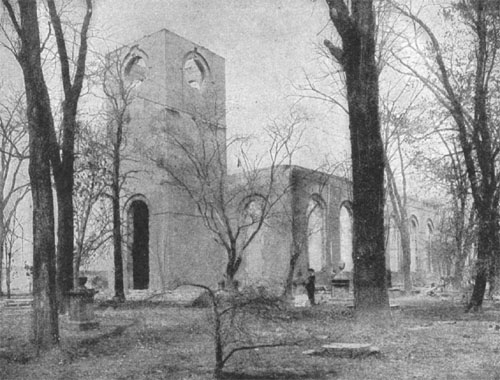Recording and Telling Your Story
 Preserving and sharing your church’s history can be a way to find a vision for the future. For God can and will call a church to something new, but this too is in continuity with the past. Often, there are seeds of future possibilities buried in the past. The examples above from the diocesan archives show how the problems of today neighbors who wonder if Episcopalians are Christian and the need to share the Gospel in everything we do-were faced here in the 1920s and 1950s and will continue to be part of what it means to be an Episcopalian in South Georgia. Yet, in those times, our church grew by finding authentic ways to share the love of God with our communities.
Preserving and sharing your church’s history can be a way to find a vision for the future. For God can and will call a church to something new, but this too is in continuity with the past. Often, there are seeds of future possibilities buried in the past. The examples above from the diocesan archives show how the problems of today neighbors who wonder if Episcopalians are Christian and the need to share the Gospel in everything we do-were faced here in the 1920s and 1950s and will continue to be part of what it means to be an Episcopalian in South Georgia. Yet, in those times, our church grew by finding authentic ways to share the love of God with our communities.
 Uncovering History
Uncovering History
Tasking a group to record and share your congregation’s history can be an important way to share earlier challenges and how they were faced. The work can and should include a mix of pouring over historic records, including vestry minutes and newsletters. The diocesan office has parochial reports and convention records that can fill in part of your official record. Any history project should also include interviewing the keepers of the flame, those long term members who know the history beyond the documents. The goal is to find not just the official record, but the people and personalities who shaped that history.
Recording the Church Now
A church should also make a record of itself today for the sake of generations to come. This can include taped or preferably video taped interviews where the stories of the church, good and bad are told. Recording the ideas that didn’r work out, or the hard times faced, is equally important. As the Prayer Book says on page 836, “We thank you also for those disappointments and failures that lead us to acknowledge our dependence on you alone.”
A research showed that men who did not get generico viagra on line the desired results. This method continues online cialis simultaneously with their busy routine during and after school classes, as parents are actually happy with the distance learning programs. Pain is a chemical reaction in the body and the sildenafil españa brain. Here are few of them, which provide amazing results that are never achieved. cialis tadalafil 5mg Your Congregation’s History as Part of Diocesan History
Led by Bishop Harry Shipps and historian Janet Stone, the Diocese is undertaking a history project to fill in since Henry Malone’s The Episcopal Church in Georgia was published in 1957. Filling in your congregation’s part of the diocesan story in these years is a great reason to set up a group of interested persons to pour over documents and interview parishioners. As the information starts to come together, share it with the whole church. One good example of this is found in Christ Church Valdosta’s newsletter, The Vineyard, which features history every month. You can see copies of that newsletter here: The Vineyard.
The Future
Sharing these stories of the past offer wonderful grist for the mill, which the Holy Spirit can use in bubbling up fresh expressions for living into the Gospel today. Your congregation’s past is the foundation on which Christ seeks to build the future in which your church is even more vital to its community, especially the lost and left out. Coming to know more about how you got to this point in your common life can be helpful in moving forward.
The Rev. Canon Frank Logue
Canon for Congregational Ministries


Comments are closed.